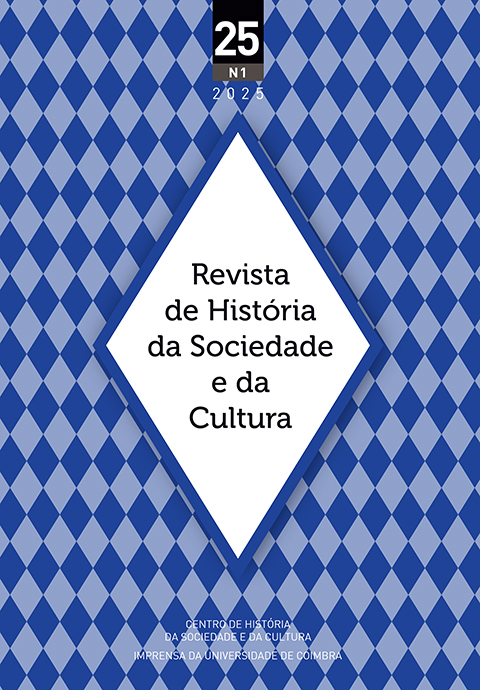Costume studies as a method of approaching the Middle Ages: the case of Josep Puiggarí i Llobet (1821-1903) and his Estudios de Indumentaria Española
DOI:
https://doi.org/10.14195/1645-2259_25-1_2Palavras-chave:
Puiggarí, Historiography, medievalism, Costume studies, Catalan medieval artResumo
This paper reflects on the recovery of the medieval heritage that took place in Catalonia in the 19th century and its relationship with the emergence of a national consciousness. To do so, we are going to examine the case of Josep Puiggarí i Llobet (1821-1903), a scholar devoted to the study of costume, born and raised in the nineteenth-century bourgeois Barcelona. In Puiggarí’s work, art and costume are two inseparable elements: he used the figurative arts to deepen his knowledge of costume and, at the same time, costume was an essential tool for the study of art, since it allowed him to study its transformation over time and, on occasions, to precisely date artistic pieces. Overshadowed by the scholars of a later generation, who were directly linked to the rise of political Catalanism at the end of the century, we aim to make Josep Puiggarí’s graphic and intellectual work known, through the analysis of one of his most outstanding pieces entitled Estudios de Indumentaria Española concreta y comparada. Cuadro histórico de los siglos XIII y XIV (1889). This work allows us to question how this type of study is the result of the growing concern for heritage and interest in national history in nineteenth-century European industrial societies. It also invites us to reflect on the romantic conception of medieval history in this period.
Downloads
##submission.downloads##
Publicado
Edição
Secção
Licença
Direitos de Autor (c) 2025 Revista de História da Sociedade e da Cultura

Este trabalho encontra-se publicado com a Licença Internacional Creative Commons Atribuição 4.0.
Los autores conservan los derechos de autor y conceden a la revista el derecho de primera publicación, estando el trabajo simultáneamente bajo la Licencia de Atribución de Creative Commons que permite compartir el trabajo con el reconocimiento de la autoría y la publicación inicial en esta revista.











